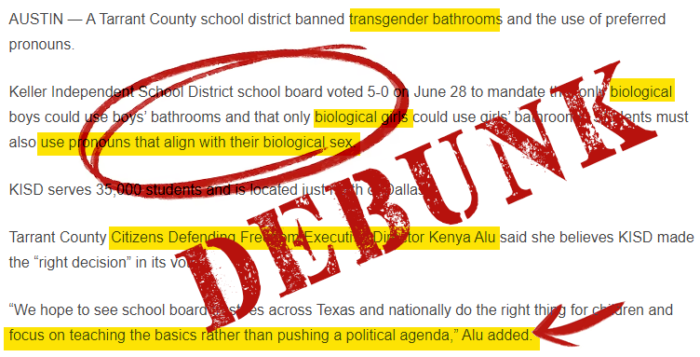Today the Merriam-Webster announced the addition of the singular non-binary pronoun, they.
The nonbinary pronoun ‘they’ has been added to the dictionary. https://t.co/tadl1VdfB0
— Merriam-Webster (@MerriamWebster) September 17, 2019
In an interview with the TransAdvocate, Merriam-Webster representative Emily A. Brewster said the following:
Evidence for they as it is used to refer to one person whose gender identity is nonbinary is increasingly common in published, edited text, as well as all over social media and in daily personal interactions between English speakers. There’s no doubt that it is an established member of the English language, which means that it belongs in Merriam-Webster’s dictionaries.
Nonbinary they takes a plural verb, despite its singular referent, which can make the grammatically conservative uncomfortable. It’s helpful to remember that the pronoun you was initially plural, which is why it too takes the plural verb even when it’s referring to a single person. “You are” has, of course, been perfectly grammatical for centuries.
The language’s lack of an exclusive gender-neutral pronoun is famous, and they has been quite ably filling in for more than 600 years. Its use largely goes unnoticed in such construction as “No one has to use it if they don’t want to,” and it’s quite possible that the nonbinary they is headed for a similarly unremarkable fate.
